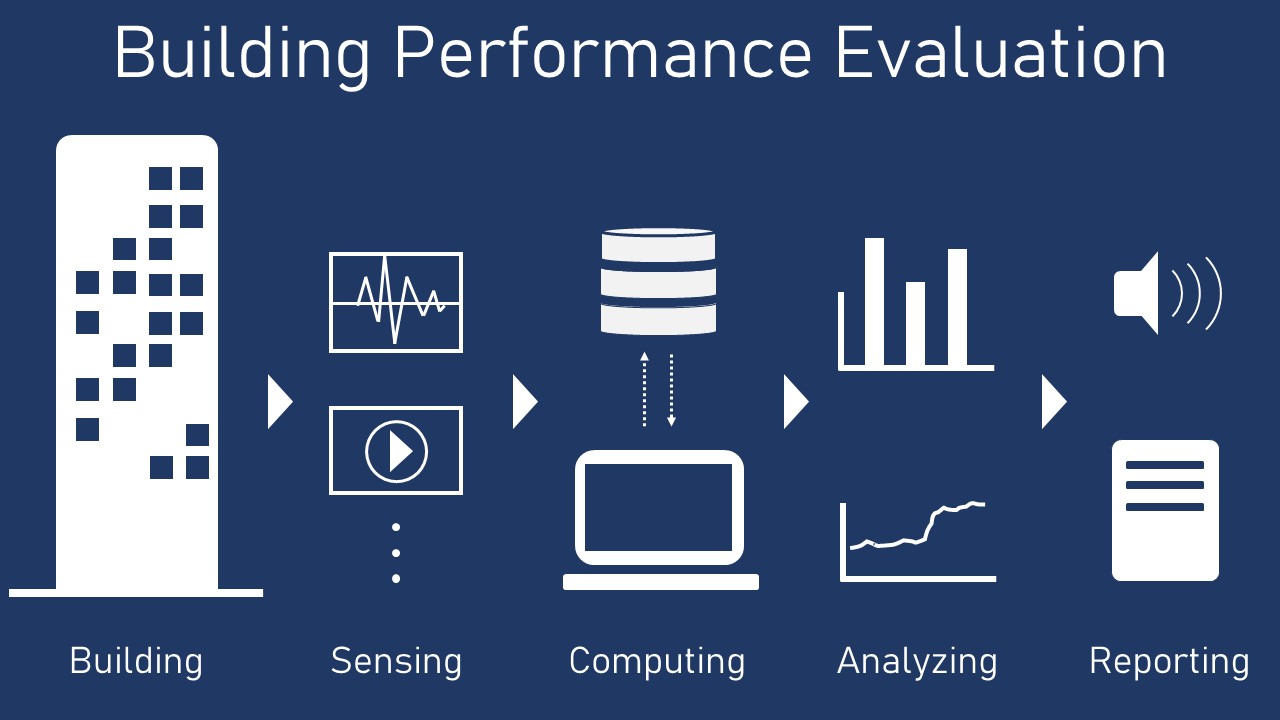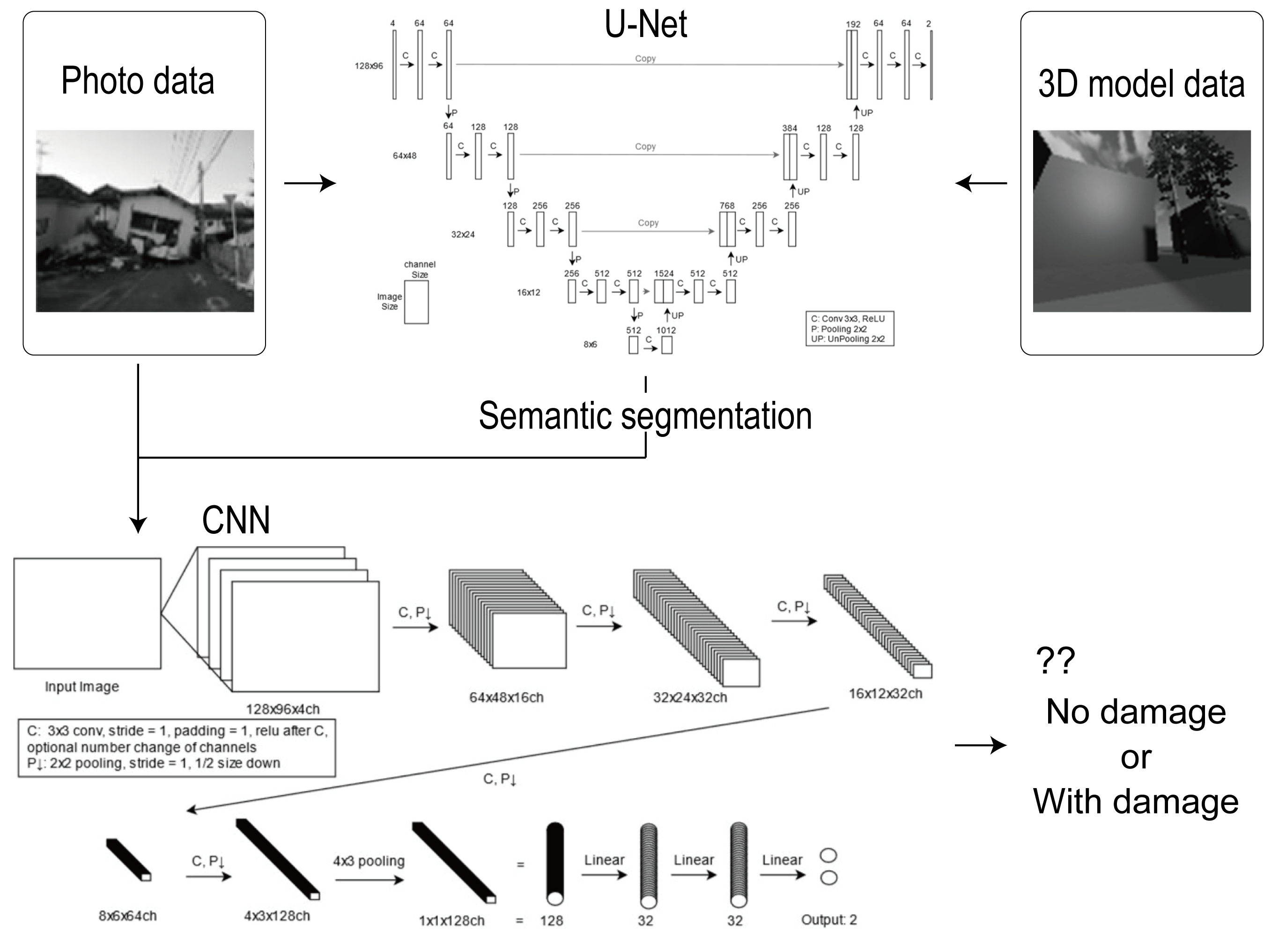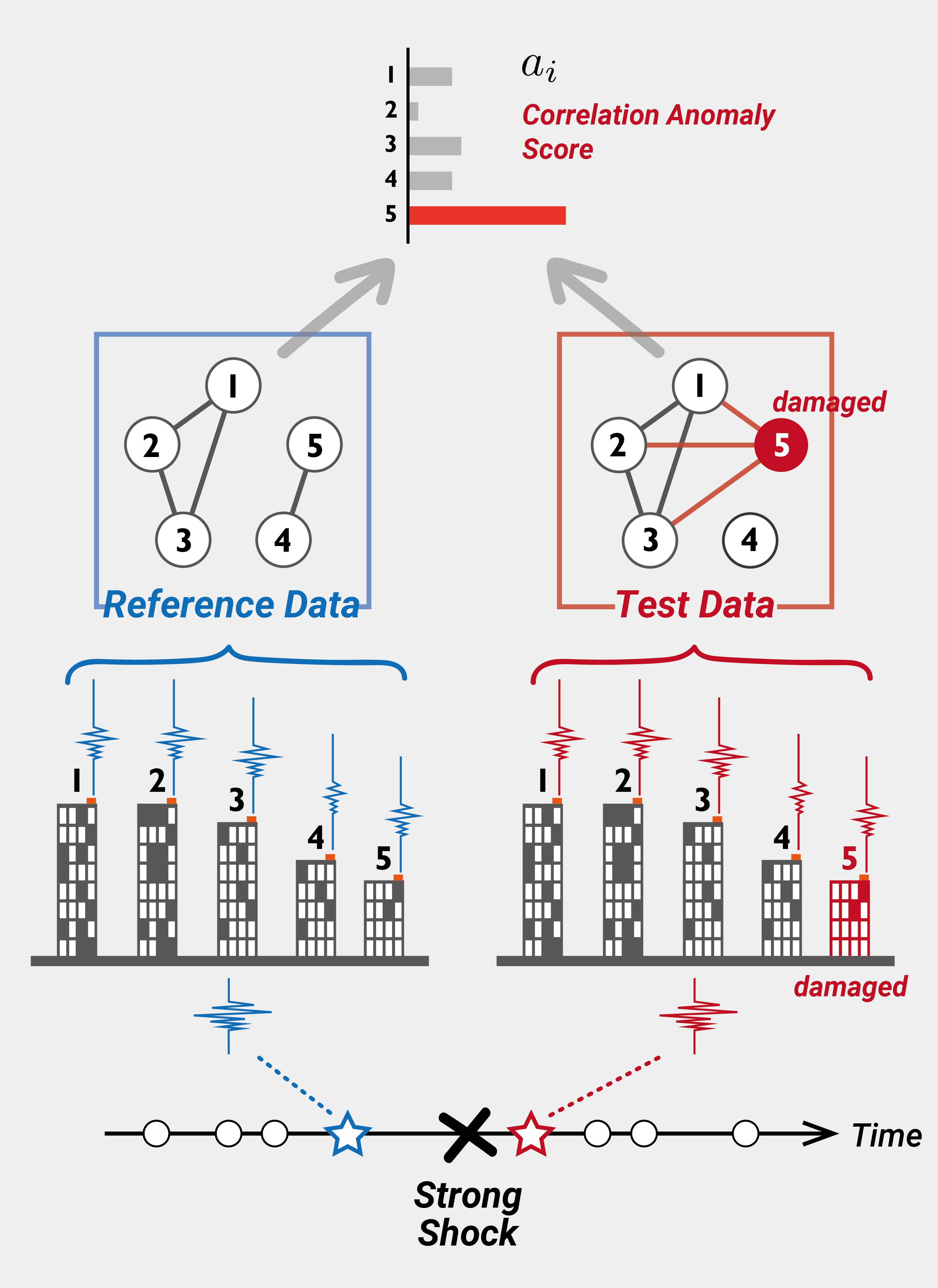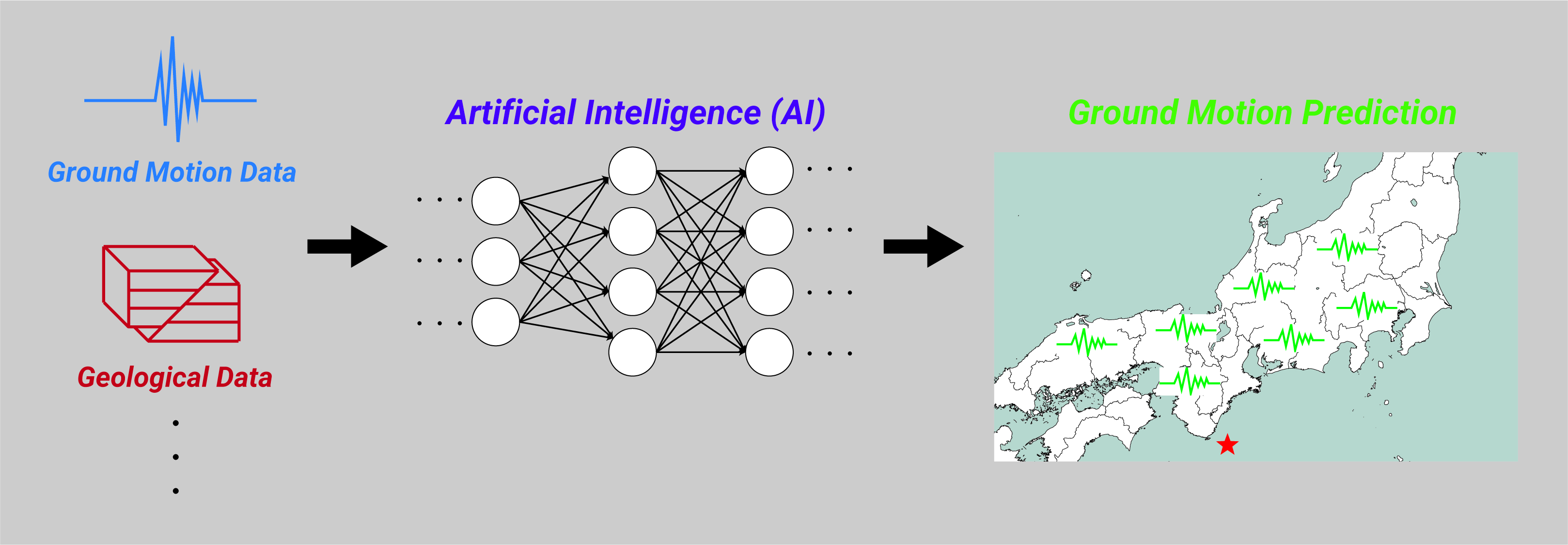Research Topics
Promote natural disaster risk management by integrating science, technology and society to realize an evolving society that continues learning from disaster risk
To contribute to the development of natural disaster risk management, we are conducting research on performance evaluation of buildings, urban risk assessment, prediction, and evaluation of natural disasters such as earthquakes and tsunamis.
We approach these research issues using methods such as simulation based on analytical models, probabilities and statistics, machine learning utilizing big data / ICT, and propose a new framework related to natural disaster risk assessment.
Performance Evaluation of Buildings
By utilizing observed seismic records, we are developing a technology to clarify the structural performance of buildings and to predict structural damage in future earthquakes. We also evaluate the performance of indoors and non-structural elements by applying machine learning and deep learning using image and video data. Based on this research, we will evaluate the performance of buildings in terms of life and business continuity after a disaster. In addition, we are developing a methodology to provide information for design decision making by optimizing the lifecycle costs of buildings using big data of seismic motion observation records.


Urban Disaster Risk Assessment
We are developing methods to evaluate the damage caused by future earthquakes and tsunamis at the urban scale. We are conducting research to monitor the urban performance from various perspectives, such as a building or a group of buildings in a city. We will evaluate urban performance of buildings, infrastructure, etc. through machine learning using various sensing data. By proposing a new urban resilience framework through these studies, we will contribute to realize a disaster-resistant society.

Seismic Motion Prediction
We are conducting research focusing on earthquake hazard themselves to be used for building structural design and disaster risk assessment. By evaluating the ground characteristics using seismic motion observation records, we will realize more accurate seismic motion prediction. We are also developing a novel data-driven approach to predict earthquake ground motion based on artificial intelligence learned from big data of earthquake records.

Thesis
Doctoral Thesis
FY2024
- MATSUMOTO, Yuma: Development and Application of Ground Motion Generative Models Toward Establishing Machine Learning-Based Earthquake Engineering
FY2023
- LEE, Sangwon: A Bayesian Updating Method for Seismic Performance Evaluation Models Using Strong Motion Records of Buildings: Quantitative Evaluation of Uncertainty in Nonlinear Seismic Response Analysis Models Based on Variational Autoencoder
FY2020
- YAOYAMA, Taro: Conceptualization and Application of Multi-scale and Multi-performance Urban Monitoring
Master Thesis
FY2024
- DENG, Qiyuan: Study on Improving the Accuracy of Earthquake and Tsunami Damage Estimation Using 3D City Model
FY2023
- ITAYA, Kotaro: Estimating the Age Profile of Housing Stock for Assessment of Post-Disaster Quality of Life
FY2022
- OLIVEIRA, Vitoria: Probabilistic seismic hazard assessment of Timor-Leste
- SHAEFER, Christopher: The Resolution Framework: An Interdisciplinary Paradigm for Long-Term Risk-Aware Flood Management in Urban Settings
- AKABA, Hinata: Study on Site-Specific Ground Motion Model Using Multi-Output Gaussian Process Regression
FY2021
- MATSUMOTO, Yuma: A Study on Generation of Earthquake Ground Motion Time History Based on the Generative Adversarial Network for Data-driven Strong Motion Prediction
- MINAMIHARA, Akira: Characterization of Disaster Risk of Tsunami Accompanying Large Earthquake Using Population and Building Exposure
FY2020
- MURAJI, Toru: Development of An Evaluation Method of Earthquake-Induced Human Fall in A Building Using A Seismic Response Analysis Model of Human Body
Bachelor Thesis
FY2024
- FUKUDA, Koki: A Model to Evaluate the Effect of Earthquake-Induced Blockages of Narrow Streets in an Urban District
- YAMAMURO, Arisa: Research on the evaluation of seismic performance of conventional wooden houses using incremental dynamic analysis -Focusing on the effect of the amendment of the Building Standard Law of Japan-
FY2023
- AMISHIKI, Kazuho: Model Updating of Frame Structure with Multimodal Variational Auto-Encoder
- ISHIKAWA, Keiichi: Estimation of Debris Flow Forces by 2D Depth Averaged Numerical Simulations
- KAMIYA, Hiroki: A Study on the Flood Disaster Mitigation Effect of Forests and Introduction Method to Urban Areas Using the MPS Method
- TAKEDA, Toshiya: Analysis on the Impact of Social Media on the Evaluation Behavior in Node-Link Modeled Actual City Districts using Muti-Agent Simulations
FY2022
- SOU, Shinaka: 防災意識の継承に影響を与える地域の“価値”に関する研究―神奈川県鎌倉市の津波被害を対象として―
- HUA, Muxi: A Study on Accelerometer-based Monitoring for Building Air-Conditioning Equipment
FY2021
- YAMADA, Ryotai: Clustering Analysis of Covariance Structure for High-Density Earthquake Records in Spatially Distributed Buildings
- SASAKI, Yutaka: A Robust Structural Design Method using Ground Motions with Probability of Occurrence Information
FY2020
- AKABA, Hinata: A Fundamental Study on Modeling Non-linear Amplification Factors of Strong Ground Motion Using Mixed Model
- ZHAO, Wenhao: A basic study on optimal earthquake-resistant design of framed structures considering site-specific seismic hazard
- HOSAKA, Mizuki: Analysis of Seismic Observation and Role of Structural Performance Monitoring in Registered Monuments
